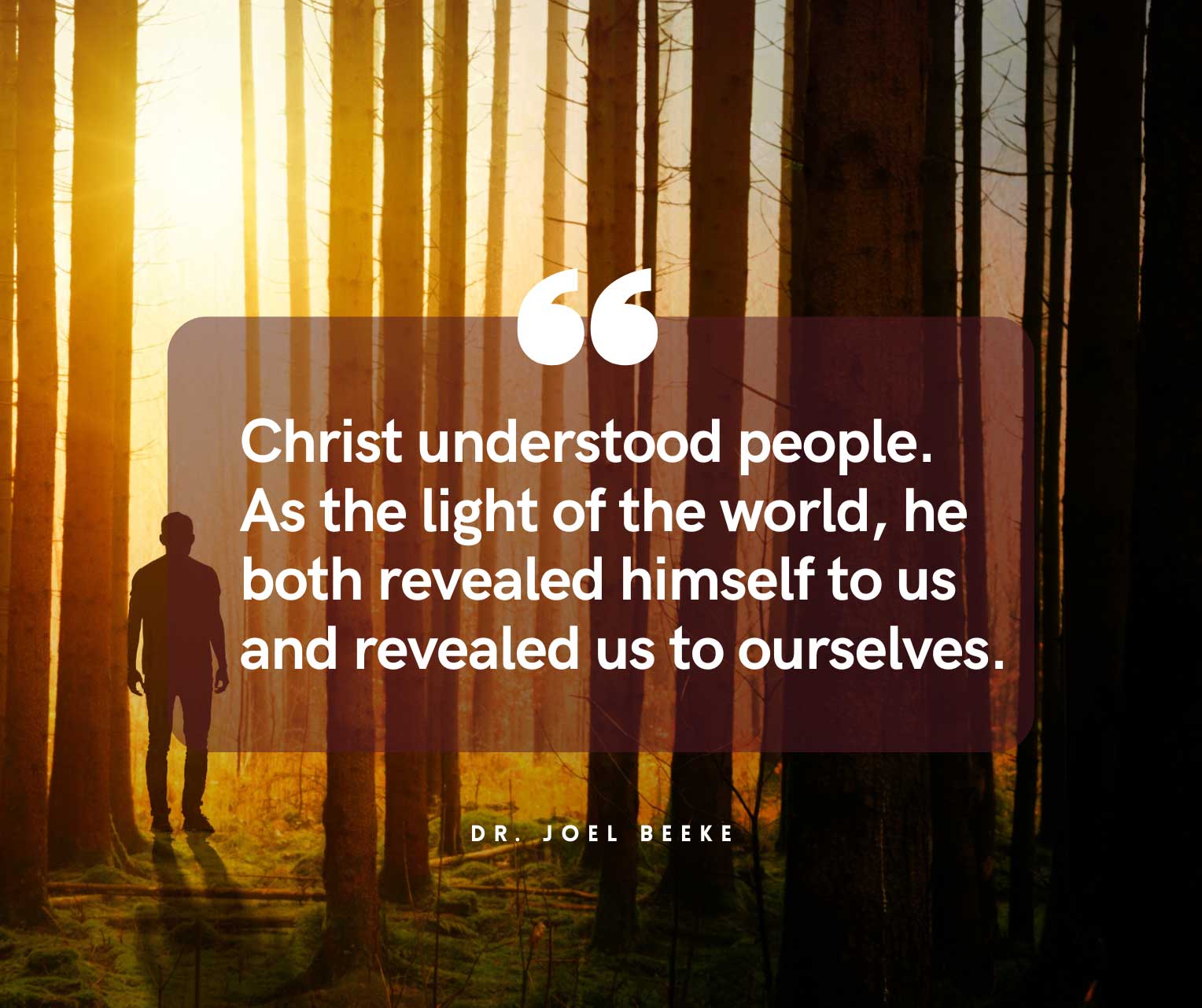
It was part of Christ’s wisdom that “he knew what was in man” (John 2:25). This knowledge enabled our Lord Jesus to deal skillfully with people ranging from Pharisees to prostitutes. Christ understood people. As the light of the world, he both revealed himself to us and revealed us to ourselves (John 3:19; cf. 15:22). Our Lord Jesus not only said many “I am” statements, but also made some very pointed “Ye are” statements.
A true anthropology is foundational for right and wise ethical decisions. Much of the confusion of our age arises from false anthropologies. Stephen Wellum frames the matter provocatively: “Are we creatures of dignity because we are created in God’s image? Or are we merely animals, by-products of an impersonal evolutionary process, things that can be, technologically speaking, manipulated and re-fashioned for whatever ends we deem best?”
Of course, man is not the greatest subject for our minds to contemplate. There is a reason why the first of the loci considered in theology is the doctrine of God (theology proper). However, the Bible does reflect back to us an image of ourselves, just as a mirror reflects the face of a man so that he can see himself and make appropriate changes (James 1:23–24). This is the function of anthropology: to use the Word of God as a mirror in which to see what we are, so that, by grace, we may become what we should be.
Excerpt From
Reformed Systematic Theology, Volume 2
Joel R. Beeke








